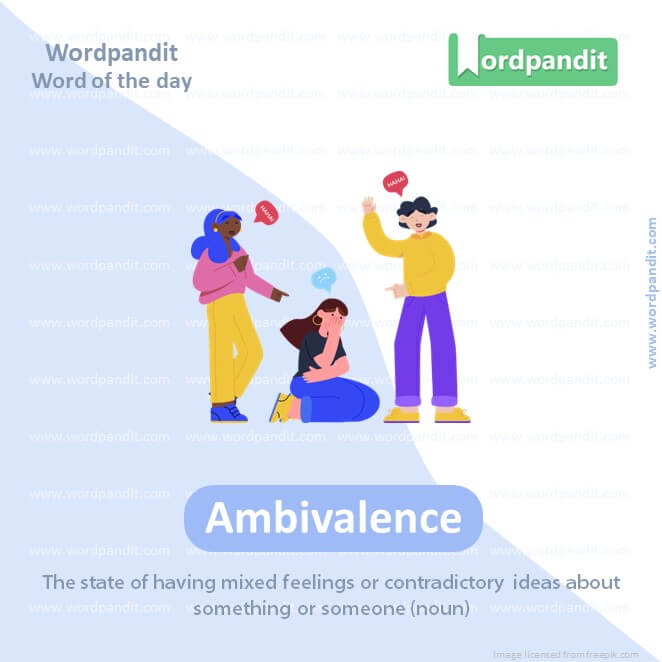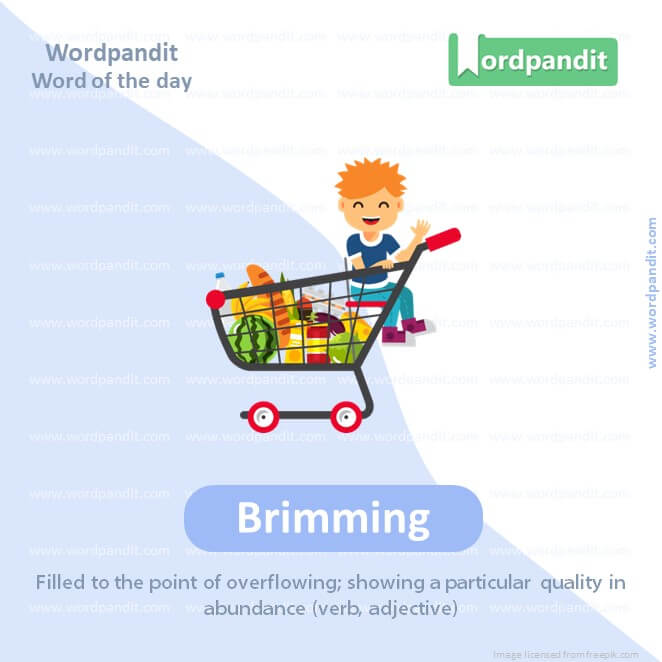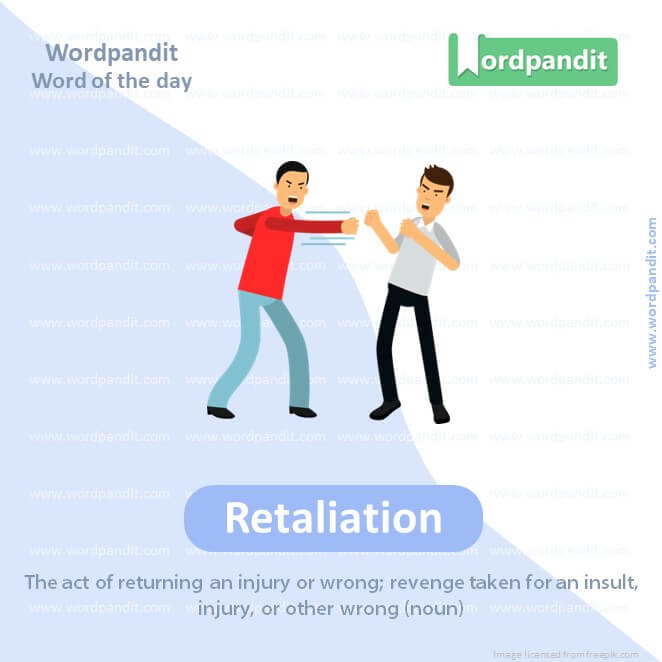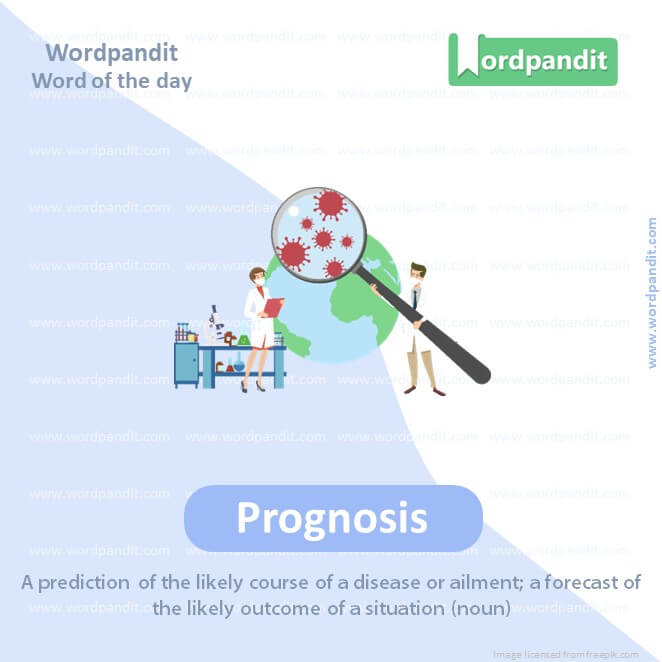Daily Vocabulary Words: List of Daily Used Words in Leading Indian Newspapers
Hi there. Welcome to this special section @ Wordpandit. Our endeavour here is straightforward: highlighting daily vocabulary words that you would come across in leading newspapers in the country. We have included the following newspapers in our selection:
• The Times of India
• The Economic Times
• Hindustan Times
• Mint
• Indian Express
We are putting in extensive work to develop your vocabulary. All you have to do is be regular with this section and check out this post daily. This is your repository of commonly used words; essentially, we are posting a list of daily used words. Hence, this has significant practical application as it teaches you words that are commonly used in leading publications mentioned above.
Visit the website daily to learn words from leading Indian newspapers.
WORD-1: Retrenched
CONTEXT: the tech companies alone laid off or retrenched 2,60,000 highly qualified employees. 100 start-ups axed 24,000 jobs.
SOURCE: Indian express
Explanatory Paragraph: Imagine you have a piggy bank where you save money. One day, you decide to spend less on toys so you can save more money. That’s like ‘retrenching’. It means you are being extra careful with your money or other things, and you’re trying not to use them too much.
Meaning: The act of reducing costs or spending in response to economic difficulty (noun); to cut down or reduce something to save money (verb).
Pronunciation: re-trench-d
Synonyms: Downsize, Cutback, Economize, Reduce, Curtail, Trim
Usage Examples:
1. The company retrenched its expenses during the economic downturn.
2. Due to budget cuts, the government had to retrench some of its projects.
3. After losing his job, he retrenched his daily spending.
4. The school retrenched its staff because of decreased enrollment.

WORD-2: Ambivalence
CONTEXT: It is the overwhelming power of this moment, and the fact that we now inhabit a political universe solely dominated by power, that expressing even ambivalence about this pran pratishtha seems more like blowing straws in a hurricane.
SOURCE: Indian express
Explanatory Paragraph: Imagine you have two favorite ice cream flavors – chocolate and strawberry. If someone asks you to pick one, and you feel unsure because you like both, that’s ambivalence. It means you have mixed feelings or can’t decide between two things.
Meaning: The state of having mixed feelings or contradictory ideas about something or someone (noun).
Pronunciation: am-bi-val-ence
Synonyms: Uncertainty, Indecision, Hesitation, Conflicted, Mixed feelings, Doubt
Usage Examples:
1. She felt ambivalence about her big move to a new city.
2. His ambivalence about the job offer made it hard to decide.
3. There was a sense of ambivalence in the team about the new policy.
4. Ambivalence about the decision was clear from her expression.

WORD-3: Brimming
CONTEXT: The dazzle of AI has blinded the BJP government to the state of the bottom 20 per cent because it has the unflinching support of a steel frame called RSS; its coffers are brimming with money thanks to the rich corporates and electoral bonds
SOURCE: Indian express
Explanatory Paragraph: Think about filling a cup with water until it’s almost overflowing. That’s like ‘brimming’. It means something is full to the top and almost spilling over. It can also mean you are full of a certain feeling, like being very happy.
Meaning: Filled to the point of overflowing; showing a particular quality in abundance (verb, adjective).
Pronunciation: brim-ming
Synonyms: Overflowing, Full, Teeming, Abundant, Laden, Packed
Usage Examples:
1. Her eyes were brimming with tears of joy.
2. The basket was brimming with fresh fruits.
3. The room was brimming with excitement for the party.
4. His report was brimming with useful information.

WORD-4: Retaliation
CONTEXT: We are now more valorous devotees of Ram — more than Tulsidas or Gandhi, who rejected the logic of retaliation.
SOURCE: Indian express
Explanatory Paragraph: If someone takes your toy and you take theirs back, that’s like ‘retaliation’. It means you do something to someone because they did something to you first, especially to get back at them.
Meaning: The act of returning an injury or wrong; revenge taken for an insult, injury, or other wrong (noun).
Pronunciation: re-tal-ee-ay-shun
Synonyms: Revenge, Reprisal, Vengeance, Payback, Recompense, Counterattack
Usage Examples:
1. He plotted retaliation against those who wronged him.
2. The strike was a form of retaliation for the unfair treatment.
3. In retaliation, she refused to talk to her friend.
4. The country threatened retaliation if attacked.

WORD-5: Narcissism
CONTEXT: We are consecrating our own collective narcissism in the image of God.
SOURCE: Indian express
Explanatory Paragraph: Imagine someone who looks in the mirror all day and thinks they are the most important person in the world. That’s narcissism. It means loving and thinking about yourself too much, more than anyone else.
Meaning: Excessive interest in or admiration of oneself and one’s physical appearance (noun).
Pronunciation: nar-sis-siz-m
Synonyms: Self-love, Vanity, Egotism, Self-obsession, Conceit, Egocentrism
Usage Examples:
1. His narcissism made it hard for him to care about others’ feelings.
2. The celebrity’s narcissism was evident in her constant self-promotion.
3. Narcissism can lead to problems in relationships.
4. The novel explores the theme of narcissism and its effects.

WORD-6: Prognosis
CONTEXT: There are moments in history that appear to drive wave after wave of people in a great torrent of catharsis, ecstasy, emotion and an elevated group mood that almost all conventional analysis, historical categories, moral measures and political prognosis seem beside the point.
SOURCE: Indian express
Explanatory Paragraph: Imagine going to a doctor because you are sick. The doctor might tell you what could happen with your sickness in the future – that’s a ‘prognosis’. It’s a way of guessing how something, like an illness, will develop.
Meaning: A prediction of the likely course of a disease or ailment; a forecast of the likely outcome of a situation (noun).
Pronunciation: prog-no-sis
Synonyms: Forecast, Prediction, Outlook, Diagnosis, Projection, Expectation
Usage Examples:
1. The doctor gave a positive prognosis for her recovery.
2. The prognosis for the economy is not very promising.
3. Based on the symptoms, the prognosis was uncertain.
4. The prognosis for the disease depends on early detection.
WORD-7: Befitting
CONTEXT: Notwithstanding these differences, both countries have sought to maintain the veneer of a harmonious bilateral ties as befitting neighbouring Islamic nations with historical associations.
SOURCE: Hindustan times
Explanatory Paragraph: Imagine wearing a fancy dress or suit to a big party. That dress or suit is ‘befitting’ the party. It means something is suitable or proper for the situation or occasion.
Meaning: Appropriate to; suitable or proper for (adjective).
Pronunciation: be-fit-ting
Synonyms: Suitable, Appropriate, Apt, Proper, Fitting, Right
Usage Examples:
1. He wore a befitting suit for the formal event.
2. The punishment was not befitting the crime.
3. She made a speech that was befitting the solemn occasion.
4. The decorations were befitting a royal wedding.
WORD-8: Obliged
CONTEXT: Even Opposition parties are obliged to pay allegiance to Ram in the form that ironically was best described by Iqbal when he called Ram the Imam-e-Hind.
SOURCE: Indian express
Explanatory Paragraph: If your mom asks you to clean your room and you do it, you are ‘obliged’. It means you have to do something because it’s a rule or someone asks you to. It can also mean being thankful when someone helps you.
Meaning: Required to do something because of a law, rule, or someone asking; expressing gratitude (verb).
Pronunciation: oh-blighjd
Synonyms: Required, Compelled, Bound, Grateful, Indebted, Thankful
Usage Examples:
1. He felt obliged to help his friend in need.
2. She was obliged to follow the company’s policies.
3. I’m obliged to you for your generous help.
4. The students are obliged to attend all classes.
WORD-9: Encroaching
CONTEXT: An overview from a distance may well suggest to some that a single theatre is emerging with the conflict in West Asia encroaching into South Asia
SOURCE: Hindustan times
Explanatory Paragraph: Imagine you built a sandcastle and someone’s foot starts to step into it. That foot is ‘encroaching’. It means moving into a space or area slowly and often unwantedly, like invading someone’s space.
Meaning: Gradually intrude on or advance into an area or property without permission; trespass (verb).
Pronunciation: en-croach-ing
Synonyms: Intruding, Trespassing, Invading, Infringing, Overstepping, Infiltrating
Usage Examples:
1. The neighbors complained about the tree encroaching on their property.
2. Urban development is encroaching on the wildlife habitat.
3. She felt her privacy was being encroached upon.
4. Laws are in place to prevent encroaching on protected lands.
WORD-10 Introspect
CONTEXT the crisis will make Pakistan introspect about its neighbourhood and its national interest remains an open question.
SOURCE: Hindustan times
Explanatory Paragraph: Imagine thinking deeply about your own thoughts and feelings. That’s ‘introspecting’. It means looking inside yourself to understand your emotions or behavior.
Meaning: To look into or examine one’s own mind or feelings; self-examination (verb).
Pronunciation: in-tro-spect
Synonyms: Reflect, Contemplate, Self-examine, Meditate, Ponder, Analyze
Usage Examples:
1. He took time to introspect on his life decisions.
2. Introspecting helped her understand her feelings better.
3. It’s important to introspect to grow personally.
4. The retreat gave her a chance to introspect and relax.
Vocabulary Words
When delving into the dynamic world of languages, the grandeur of ‘vocabulary words’ is all-encompassing. The importance of ‘vocabulary words’ in effective communication cannot be overstated; it’s these words that form the backdrop of any language, painting intricate pictures of thoughts and ideas.
Starting on the journey of learning ‘vocabulary words’, one should steer clear from rote memorization. The traditional structure of merely repeating words lacks the necessary context and application that actually embeds these words into your memory. To truly master the ‘vocabulary words’, one needs an integrated, immersive approach.
The first step towards mastering ‘vocabulary words’ is to engage with varied language mediums. Expanding beyond textbooks to read fiction, articles, blogs, and other forms of content not only diversifies your vocabulary but also acts as a mirror to reflect the practical application of these words. Essentially, you’re exposed to the words as they are commonly used, allowing you to truly understand their essence.
Empowering this journey, tech tools like language learning apps and memory-enhancing flashcards significantly aid in learning ‘vocabulary words’. These interactive tools provide a more engaging learning experience and hone word retention. Mnemonic devices, associating words with a unique story or visual image, enrich the process and make memory recall more efficient.
Practicing ‘vocabulary words’ by using them in day-to-day conversations exemplifies learning by doing. It also strengthens the neural pathways and improves overall word recall. This, coupled with regular revisions, ensures your grasp over ‘vocabulary words’ remains strong.
In conclusion, learning ‘vocabulary words’ is not just about adding words to your linguistic cupboard, but understanding their essence and utilizing them effectively. An inclusive approach to learning that combines diverse reading materials, technology tools, mnemonic devices and practice can really propel your mastery over ‘vocabulary words’. Remember, language is the bloodline of communication, and ‘vocabulary words’ are its heartbeat. ‘













